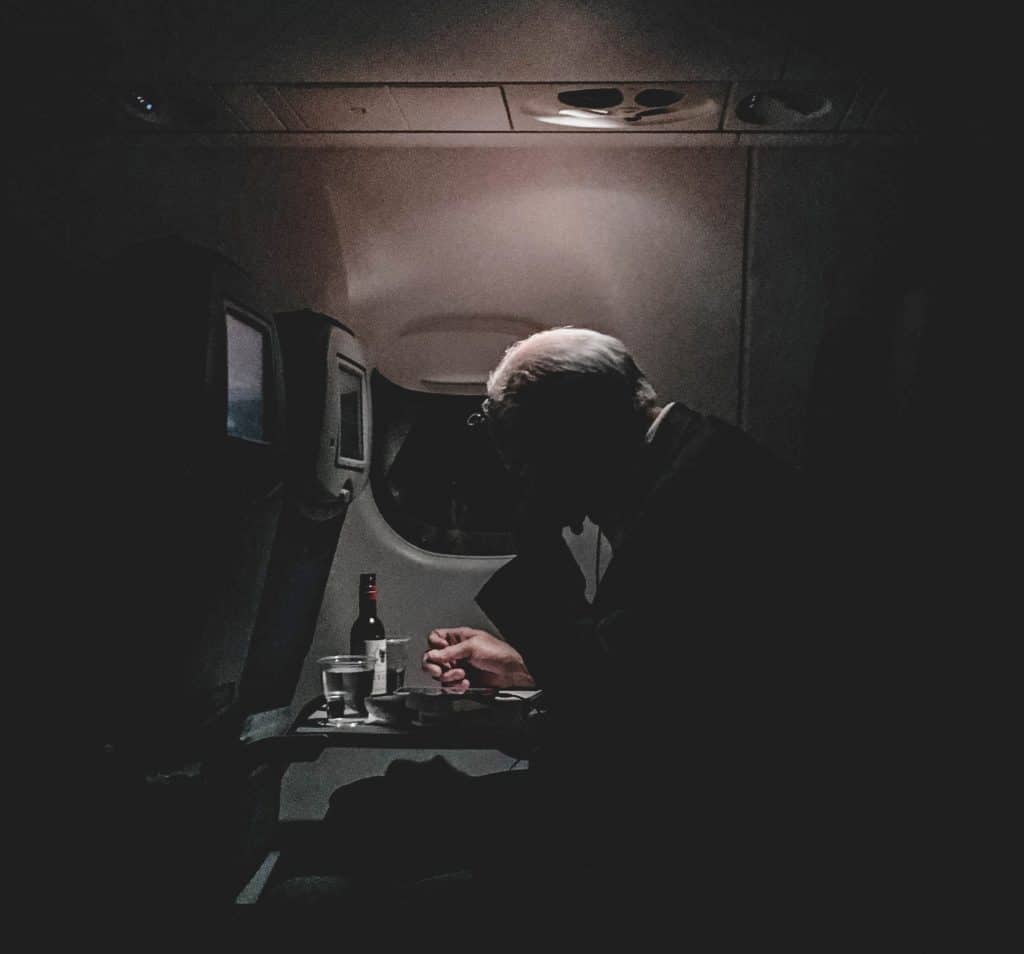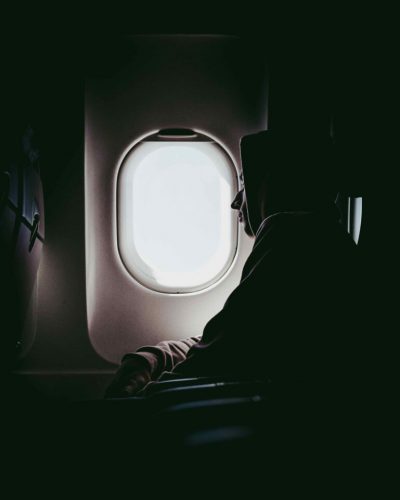Everything you need to know about Dealing with Jet Lag
Everyone knows what jet lag is, but sometimes it can be hard to understand. To make matters worse, when jet lag strikes, it’s ruthless. If you’ve ever been on a flight across a major ocean, you know exactly how difficult it can be prevent Jet Lag
If you’re someone who travels often, or someone who is looking to travel to a place far west like Asia, you’ll want to pay close attention.
While jet lag is inevitable depending on where you go, there are some methods that can help you prevent it. Some may be more unconventional than others, but the first few days of your trip should never be spent suffering. Plus, if you’ve already fallen victim to jet lag, we’ll be showing you some ways to ease your symptoms as well.
So without wasting anymore of your precious time, let’s dive right in, and take a look at how to manage the woes of jet lag. If you’re reading this article with tired eyes, a cup of coffee, and mild crankiness after a long flight, you might want to put the coffee down and skip ahead to the section about ways to reduce jet lag.
What causes jet lag?
If you have no idea why you’re feeling sluggish and fatigued after a flight to a place like Malaysia, you’re in the right place.
Jet lag is essentially the common term given to symptoms that occur after you travel across time zones. Depending on how many time zones you cross, the symptoms can be worse and last longer.
For example, if you were to fly from Arizona to Asia(west), you would be crossing so many time zones that it could take your body 5-7 days to truly recover.
The scary part is, if it’s a 8-10 day trip, that’s roughly 70% of your trip spent with jet lag. Therefore, if you’ll be heading out to see the Great Wall of China, make sure you plan your sightseeing schedule accordingly.
So why does this happen? And why do our bodies take so long to adjust?
The reason jet lag occurs, is because your body runs on an internal calendar. If you leave for a flight at 10pm, and arrive at your destination at 4pm, that’s going to confuse your body tremendously.
This is due to the fact that your body is used to a certain schedule for sleeping. Also, when it comes to recovering from lost sleep, it’s not something that happens in one night. It can take days to fully recover and be as alert as norma.
It's all in the rhythm
Let’s get a bit technical for a second. The rhythm, in this case, is your circadian rhythm. While it might sound like a musical beat, think about it as more of a cycle for your body. Being exposed to certain light cues, night versus day, and the amount of time you’re awake, plays into your circadian rhythm. These cues become embedded in your brain, and you get fairly used to the cues in your area.
When you travel on a long flight through different time zones, not only will you experience an alteration in your rhythm, but it can be hard to get back into rhythm even when you fly back home.
The symptoms that follow this break in the cycle, tend to be insomnia, fatigue and even stomach issues. If you’ve experienced any of these symptoms after a long flight, or are currently battling them as you read, pay close attention to what follows.
As a bit of a side note, traveling to a country in Asia like Malaysia (from the United States), can also do some serious damage to your circadian rhythm. This is due to the fact that cultural differences, food differences, and time zone differences can really make it difficult to adjust. When you throw that into the mix, it can make jet lag even harder to manage.
So if you’ll be heading far to the west, make sure you factor those elements in as well.

Also, before moving on, please take into consideration that age and distance is a factor here. The older you are, the more potent jet lag may become. Jet lag can also be more difficult to manage when traveling abroad to Asian countries from the United States, due to the length of the flight.
The number of time zones you cross can be upwards of 5-7, which can really put quite a strain on your body when the plane lands.
Prevention is key
When it comes to something as hard to manage as jet lag, prevention is absolutely crucial. Plus, if you manage to avoid it in the first place, you won’t have to waste a day of your trip trying to cope with it.
While jet lag may be hard to prevent, it’s definitely possible if you handle it properly, so let’s take a look at some great ways to prevent jet lag.
#1 Adjust your sleep schedule to avoid Jet Lag
Your first line of defense against jet lag is your sleep cycle. Now, this comes down to the direction you’ll be going, but don’t worry we’ll cover both.
#2 Travel Direction
Traveling east
If you’ll be heading east on your flight, you’ll want to make sure that you start going to sleep a little bit earlier every night. A good interval to practice is 30 minutes earlier each night, and while it might not sound like much, this practice can help tremendously.
Traveling west
When it comes to heading west, take what you just read for traveling east and throw it out the window. Why? Because you’ll need to do the exact opposite. Therefore, when heading west, make sure you start practicing going to sleep later in the evening.
#3 Make sure you're ready the second you board that plane
We take a lot of things for granted every day, and one of them is time. Believe it or not, jet lag is psychological most of the time. Doing things like sleeping on the plane (if you travel at night), and set your watch to the new time zone, can be detrimental in preventing jet lag.
#4 The sooner the better to prevent Jet Lag
If your trip is for business and not pleasure, do yourself a favor and arrive a day or two early. Not only will this help you recover from jet lag if it happens, but it will also keep you sharp.
This also works if you’re planning a vacation, but in that case, a good idea might be planning your first day as a lazy day.
Can you reduce the impact of jet lag?
Now while prevention is key, and will make this process much more manageable, it’s not the end of the world if it’s too late. Jet lag has plenty of nasty symptoms, but luckily they go away on their own once you refresh your body fully. So let’s take a look at how you can speed up the process.
#5 Drink lots of fluids
Doctors seem to say “drink fluids” for almost every ailment, and while it seems like a scapegoat, it’s really effective. This is due to the fact that your body thrives on hydration. The more hydrated you are, the better your body will perform.
Also, you should try drinking water before you leave to help prevent some of the impact jet lag may have. While coffee or alcohol might seem like a good solution to wake you up or knock you out, these substances will only add to the problem. Anything with a high electrolyte level is effective as well.
#6 Light therapy for preventing Jet Lag
Light therapy sounds a whole lot more complicated than it is, and at the end of the day, is one of the best ways to get your circadian rhythm back on track. Your body reacts to natural sunlight as an indicator in regard to your sleep cycle, so exposure to plenty of sunlight in the morning hours is a great way to get you back on track.
Who said tanning had to be all bad right? Aside from natural light, you can also opt for light boxes. These boxes can also produce a similar result as well.
#7 Make sure you follow your sleep routine or try relaxing a bit before going to bed if insomnia is the issue
If you’re having trouble falling asleep or staying asleep, a routine is going to be key. For example, if you’re used to sleeping with the TV on low volume, make sure it’s on and at the right volume.
This is also true for other parts of your routine, and you’ll want to make sure you minimize the number of distractions that are around you. In this day and age, something as simple as turning your phone off can help you sleep easier.
If you’re looking to relax a bit before bed, you can try taking a bath or having a glass of wine. Please don’t have more than one or two glasses, because as we mentioned earlier, alcohol can make jet lag worse when used excessively. Drink responsibility right?
Aside from having a glass of wine to calm you down a bit, you can also opt for a bath. A shower can work too, but either way, try exposing yourself to some warm water before climbing into bed. Warm water is proven to help your muscles relax a bit, and this can be crucial when it comes to falling asleep properly.
There is no magical cure for jet lag, but if you manage it right, you can definitely reduce most of the symptoms.
Recap
Jet lag is something that everyone knows about, but absolutely hates talking about. Plus, if you’re already suffering from jet lag, it can be hard to even read an article that helps you manage it. When jet lag strikes, make sure you’re prepared. Nobody should spend their first day in paradise stuck in bed.
Please keep in mind that each method might not work the same way for everyone. Unfortunately, everybody is different, so mixing and matching some of these ideas is likely your best bet when it comes to dealing with the woes of jet lag.
Now that you know the facts, we hope that your next flight goes according to plan.
Explore aesthetics lodging to stay in Malaysia
Like this article? Share to someone who might travel onboard soon.

















